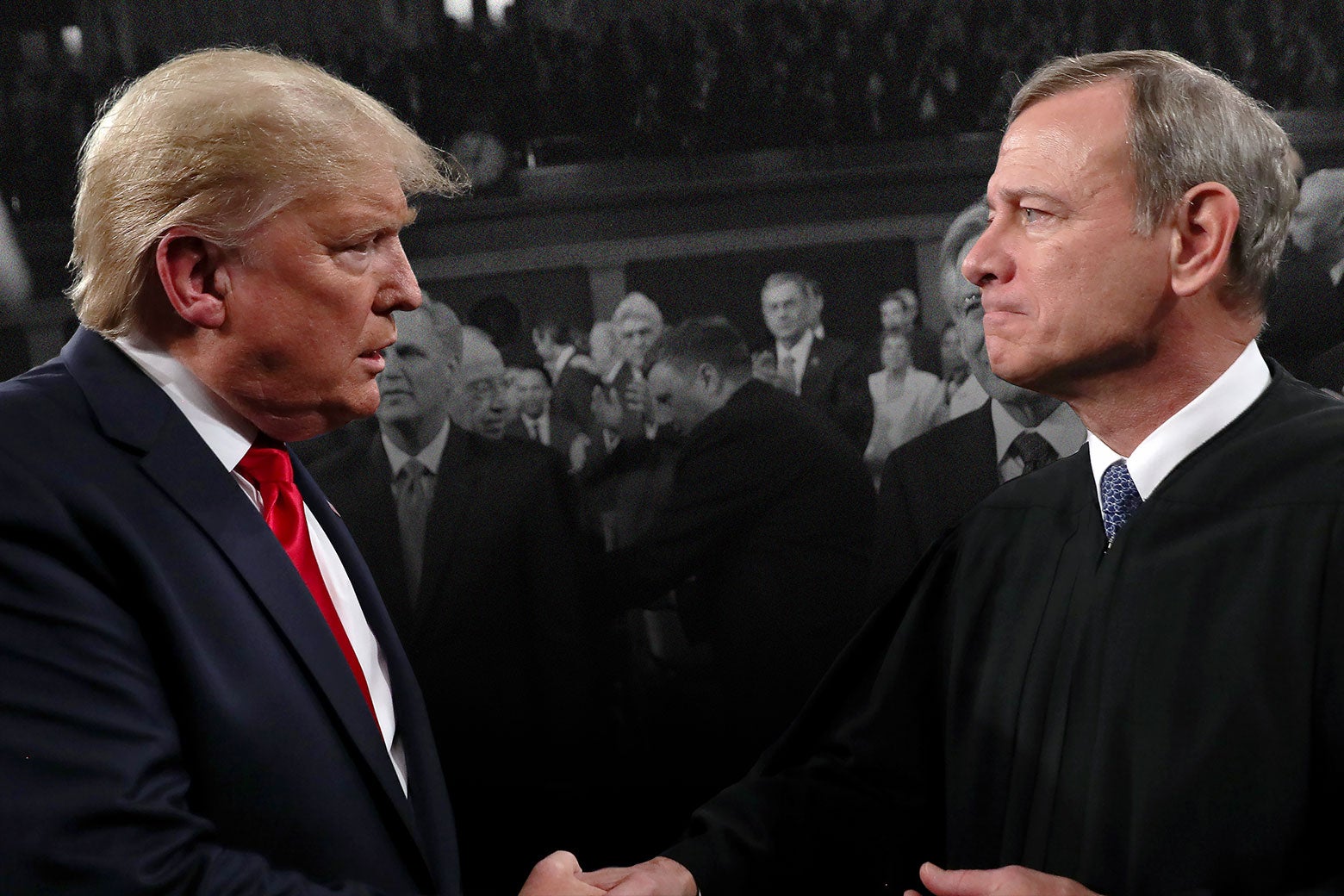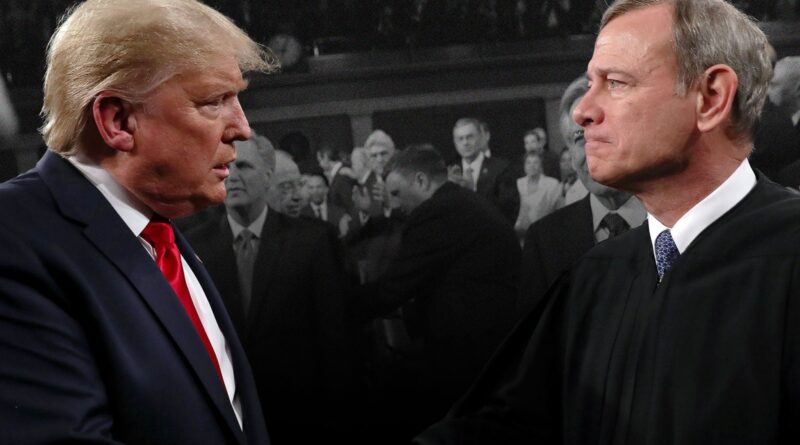Jack Smith’s Big New Jan. 6 Brief Is a Major Indictment of the Supreme Court
Jurisprudence

It’s rare to simultaneously feel red-hot anger and wistfulness, especially when merely reading a document. But those are exactly the emotions that washed over me when I read the redacted version of special counsel Jack Smith’s brief reciting in detail the evidence against Donald Trump for attempting to subvert the 2020 election. The anger is at the Supreme Court for depriving the American people of the chance for a full public airing of Donald Trump’s attempt to use fraud and trickery to overturn Joe Biden’s 2020 presidential victory before voters consider whether to put Trump back in office beginning January 2025. The wistfulness comes with the recognition that there is about an even chance that this will be the last evidence produced by the federal government of this nefarious plot. If Donald Trump wins election next month, the end of this prosecution is certain and the risks of future election subversion heightened.
Smith’s brief spells out in much greater detail than we have seen elsewhere—including in the report of the special House of Representatives committee investigating the events of Jan. 6—evidence of Trump’s attempts to subvert the election, and especially of Trump’s mental state. It tells us that Trump was warned by his campaign officials that there likely would not be enough ballots counted on election night to know who won, but that he decided beforehand that he would declare victory either way. Trump repeatedly claimed there was fraud in the election and directed the campaign and his lawyers to look for it. They all told him after investigation, as did his Vice President Mike Pence, that there was no evidence of significant fraud and that he lost the election. Pence told Trump to “take a bow” and think about running in 2024, which Trump thought was too long to wait.
Trump continued his plot to try to overturn the election, including with a notorious call with Georgia’s secretary of state, Brad Raffensperger, pressuring him to “find” 11,780 votes to overturn the results of the election. Trump and his allies tried to twist the arms of legislators to appoint fake electors that could be counted by Congress. (Smith includes bonkers new details about this scheme, including the fact that one potential participant referred to its ringleaders as being like characters in the infamous Star Wars cantina, otherwise known as the most “wretched hive of scum and villainy” in the galaxy.) Trump directly caused fake electors to meet in various states. He publicly berated Pence for not going along with his plot to overturn the results of the election, and whipped up the Jan. 6 crowd against Pence when they stormed the Capitol on Jan. 6, 2021, in an attempt to stop Congress’ confirmation of Biden’s Electoral College victory. Over 140 law enforcement officers were injured in the Trump-inspired melee.
Trump’s detailed plot to overturn the results of the election was brazen and a major threat to American democracy. Because of it, even today, millions of Trump supporters believe the last election was stolen, and that primes the public for new attempts at subversion. Trump’s new running mate, Sen. J.D. Vance, had to go along with the lie at Tuesday’s vice presidential debate, refusing to admit the incontrovertible truth that Trump lost the 2020 election.
And now perhaps the most important case in American history may never get to a jury and the American public will never get a chance to learn about this evidence and a jury’s judgment of this evidence before they consider returning Donald Trump to office.
There’s a ton of blame to go around for this situation, beginning with then–Senate Majority Leader Mitch McConnell’s refusal to support Donald Trump’s conviction in the Senate after the House impeached him for these activities. Although 57 senators, including seven Republicans, voted for conviction, McConnell did not bring more Republicans along. Had he done so, the Senate could have disqualified Trump from running for office again.
Then there is Joe Biden’s Attorney General Merrick Garland, who dragged his feet for well over a year before taking decisive action against the biggest threat to American democracy since the Civil War of the 1860s. His timidity is inexplicable and disappointing.
But worst of all is the United States Supreme Court. Smith’s Wednesday filing was not a trial brief laying out the case. It is instead a document meant to determine which of Trump’s acts in attempting to subvert the 2020 election were “official acts” that are immune from prosecution and which are unofficial acts, or official acts that may be subject to prosecution (under a set of rules very protective of the former president). Nowhere are the stakes clearer and the difficulty of the task more explicit than when Smith attempts to rebut the presumptive immunity the court offered in regard to Trump’s conversations with Pence seeking to pressure him not to certify the electoral vote:
The defendant’s charged conduct directly contravenes [America’s] foundational principles. He sought to encroach on powers specifically assigned by the Constitution to other branches, to advance his own self-interest and perpetuate himself in power, contrary to the will of the people. As such, applying a criminal prohibition to the defendant’s conduct would not pose any danger of intrusion on the authority and functions of the Executive Branch; rather, it would advance the Constitution’s structural design to prevent one Branch from usurping or impairing the performance of the constitutional responsibilities of another Branch.
Smith was following the road map laid out in an opaque and infuriating ruling from the Supreme Court last June, recognizing broad immunity for presidents from prosecution. At best it will be many months and further appeals, potentially again to the Supreme Court, before this could ever get to trial.
The New York Times recently reported on the internal Supreme Court deliberations, and they paint Chief Justice John Roberts, author of the Trump immunity decision, as having turned from a justice known for seeking common ground and minimalist outcomes to one set out to protect the office of the presidency at all costs. The opinion was so focused on the risks to the vigorousness of the activities of future presidents that could come from the threat of future prosecutions that it was willing to ignore the current threat to democracy today from Trump’s actions in 2020, not to mention his continued insistence that he won the last election.
Right now it appears to be a toss-up whether Trump or Vice President Kamala Harris will win office in the November election. If Trump wins, he will have his attorney general fire Smith and shut down this prosecution. If he keeps his promises, he even may seek to investigate and prosecute Smith, Harris, Biden, and others. There is a risk of authoritarianism down the line.
The fact that no jury may pass on the deadly serious allegations in Smith’s complaint will do more than simply let Trump and others off the hooks for their potential crimes. It will make future criminal activity related to American elections much more likely. And it all could have been avoided if McConnell, Garland, and especially the Supreme Court had done the right thing.

